Evolution of Security Guard Training & Certification in Australia
November 4, 2024
industry in Australia has evolved dramatically over the years, shaped by changing societal needs, heightened security threats, and advancements in technology. Today, Australian security guards undergo comprehensive training and certification to ensure they are prepared to meet the demands of modern security services. This article explores the development of security guard training in Australia, the certification requirements, the role of specialized training, and the future directions of this essential industry.
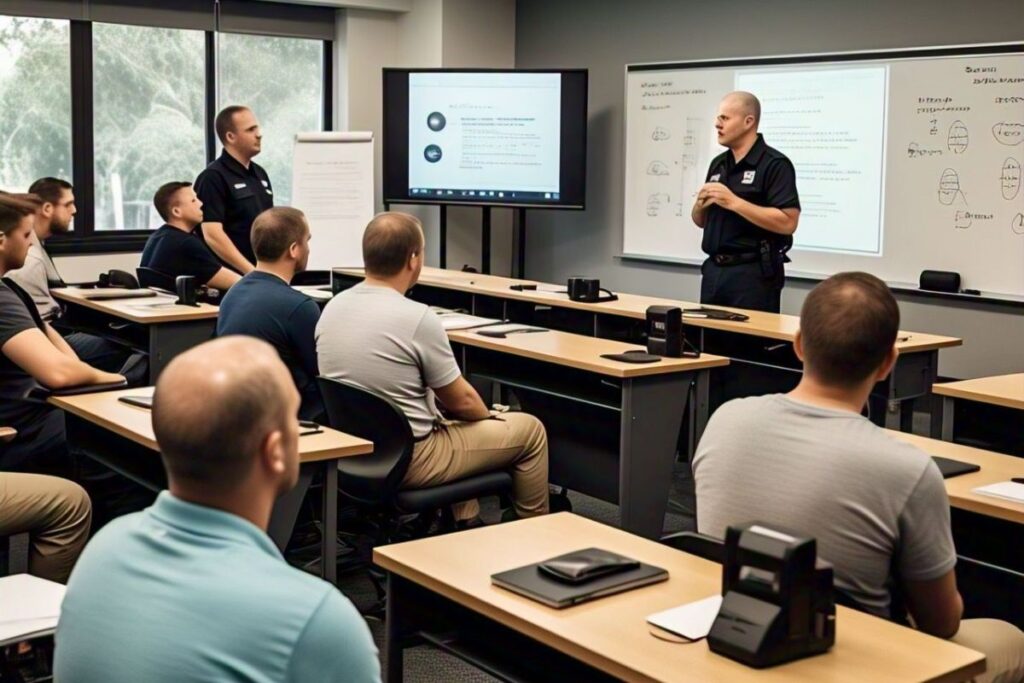
The Early Days: Origins of Security Guard Services in Australia
In its earliest form, the security industry in Australia was an unregulated field with minimal training standards. Security guards were largely tasked with maintaining order and preventing petty crimes, often without the rigorous training or licensing that is common today. However, as the nation’s cities grew and security needs became more complex, it became evident that the traditional approach to security was insufficient. The security guard role began to professionalize, with increasing demands for regulation and standardization. The introduction of mandatory certifications and structured training programs marked a turning point, laying the foundation for a modern, reliable security industry in Australia. This transition reflected a broader recognition of the importance of well-trained security personnel in safeguarding communities, businesses, and public spaces.
For more insight into the current challenges faced by security guards, including crisis management and workplace violence, explore our guide on common challenges faced by security guards in Australia.
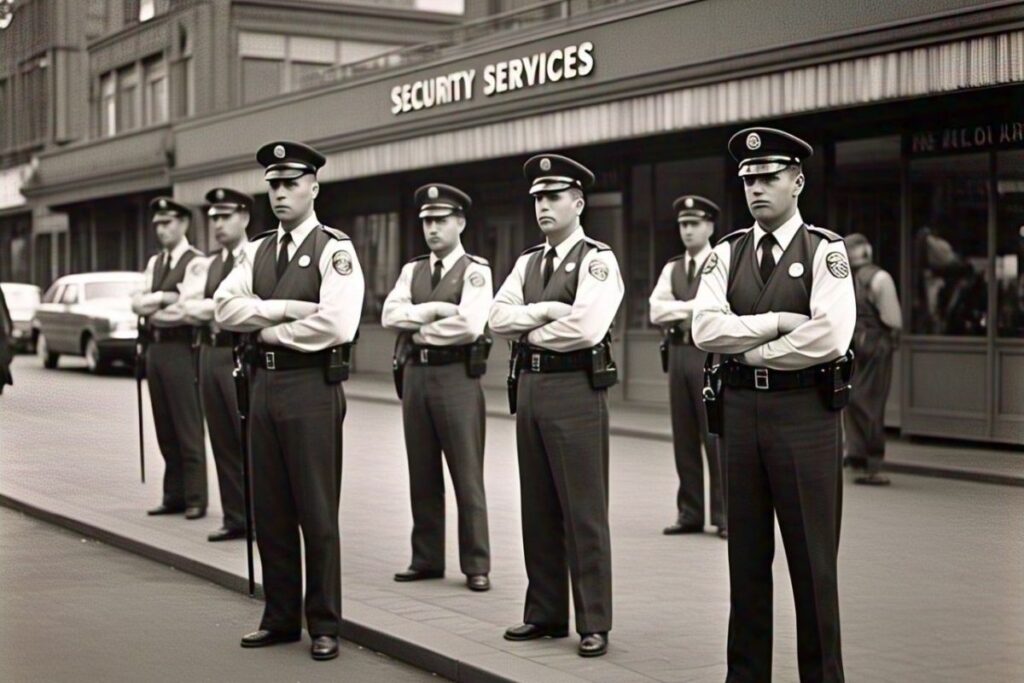
Current Training Standards: What It Takes to Become a Security Guard in Australia
Today, Australia maintains some of the world’s most stringent training standards for security guards. A comprehensive training framework ensures that guards possess the knowledge and skills necessary to perform their duties responsibly. Before a guard can be licensed, they must complete a Certificate II in Security Operations, which provides foundational training in legal knowledge, communication, and safety protocols. This certification covers various topics, including basic risk assessment, conflict resolution, and adherence to ethical standards.
The training programs are designed to prepare guards for the real-world scenarios they will encounter on the job. The curriculum includes modules on Australian legal requirements, empowering guards with an understanding of privacy laws, trespass laws, and the responsibilities associated with their roles. Additionally, emphasis is placed on interpersonal skills, equipping guards with the communication skills necessary to handle conflict situations professionally. The detailed and rigorous training is a testament to Australia’s commitment to security quality, ensuring that guards are capable of maintaining order while upholding ethical standards.

Certification and Licensing: A Step-by-Step Guide
To operate as a licensed security guard in Australia, candidates must meet strict certification and licensing requirements. Once training is completed, aspiring guards apply for a license through the state’s regulatory body, which involves extensive background checks. These checks include criminal history assessments to determine the applicant’s suitability for a role that demands high integrity and trustworthiness.
The licensing process varies slightly across states, with some states requiring additional qualifications, such as Certificate III in Security Operations for specific roles. This certification further enhances a guard’s skills, focusing on areas like emergency response and advanced surveillance techniques. Upon receiving their license, security guards must regularly renew it and complete refresher courses to stay updated on legal changes and best practices. The process reflects the Australian security industry’s focus on accountability and professionalism, ensuring that all active security guards meet a minimum standard of excellence.
For those interested in establishing a security business and understanding the steps involved in hiring and training guards, refer to our guide on how to establish a security guard business in Australia.
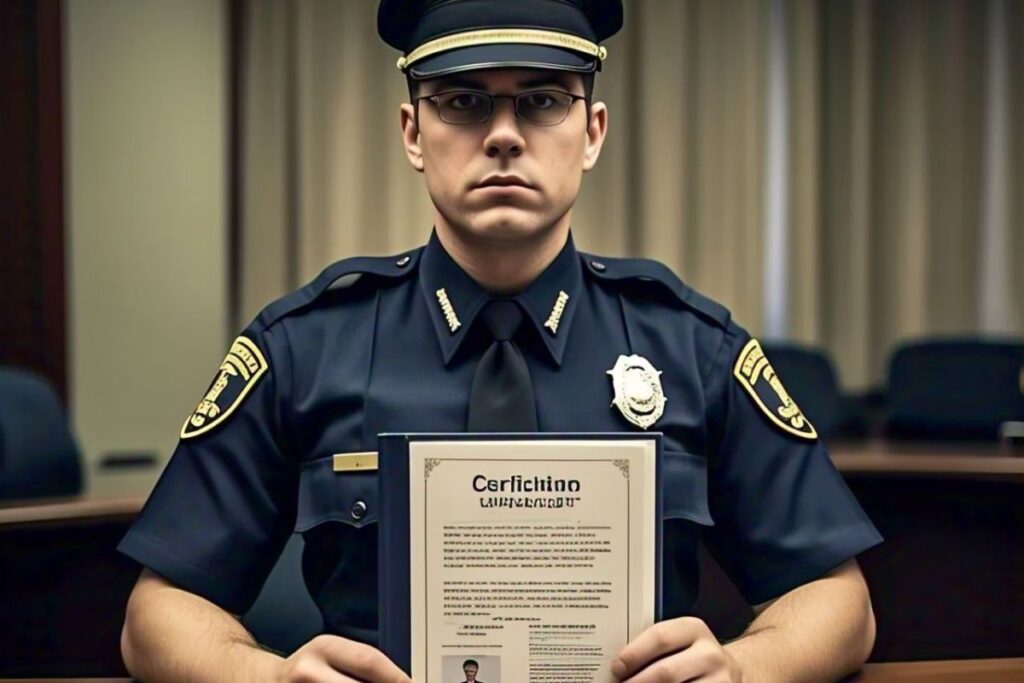
Specialized Training Programs: Going Beyond Basic Certification
While the basic certification is sufficient for many entry-level security roles, guards who wish to specialize in areas like K-9 security, event security, or personal protection must undergo additional training. Specialized training programs offer a deeper dive into niche areas, preparing guards for complex roles that require unique skill sets. For example, K-9 units demand extensive training for both the handler and the canine. This training includes obedience exercises, threat detection, and agility drills to ensure that the K-9 unit is capable of handling various security situations effectively.
Similarly, guards involved in event security undergo crowd management training, equipping them to manage large gatherings safely and respond swiftly to any disruptions. This type of specialized training is critical in ensuring that security guards can handle diverse scenarios and provide tailored services depending on the environment and client requirements. With specialized skills, these guards become invaluable assets to security teams, offering a level of expertise that enhances the effectiveness of security operations.
To learn more about the unique contributions of K-9 units and their impact on security services, see our detailed article on the role of K-9 units in security guard services.
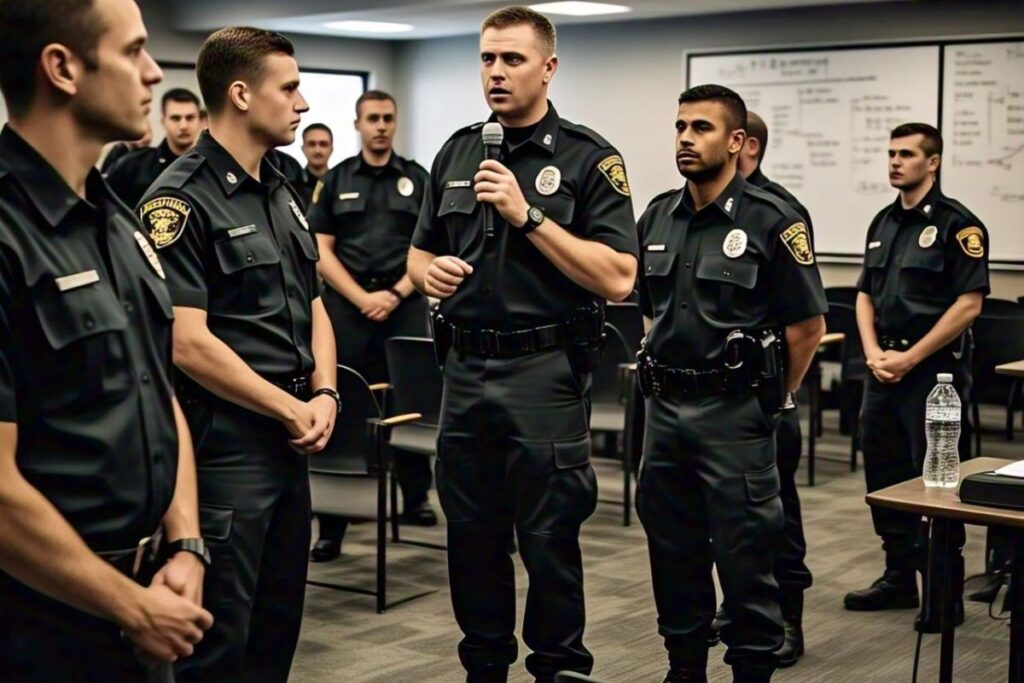
The Role of Technology in Modern Security Training
Technology plays a pivotal role in modern security training, enabling guards to gain experience in simulated environments before facing real-world scenarios. Many training providers incorporate tools like CCTV systems, alarm monitoring software, and virtual reality (VR) simulations into their curriculum. VR simulations, for instance, allow guards to practice response protocols in controlled settings, testing their ability to handle emergencies such as fire outbreaks, intruder situations, or crowd disturbances.
The integration of these technologies into security training not only enhances guards’ skills but also improves their confidence when handling complex systems in their everyday roles. Furthermore, advancements in digital communication tools allow for remote training sessions, enabling guards to stay updated on the latest practices without needing to travel. Technology’s role in security training will likely continue to grow, particularly as new threats emerge, and the demand for efficient, tech-savvy guards rises. By embracing technology, the security industry in Australia is better equipped to meet the safety needs of a modern society.
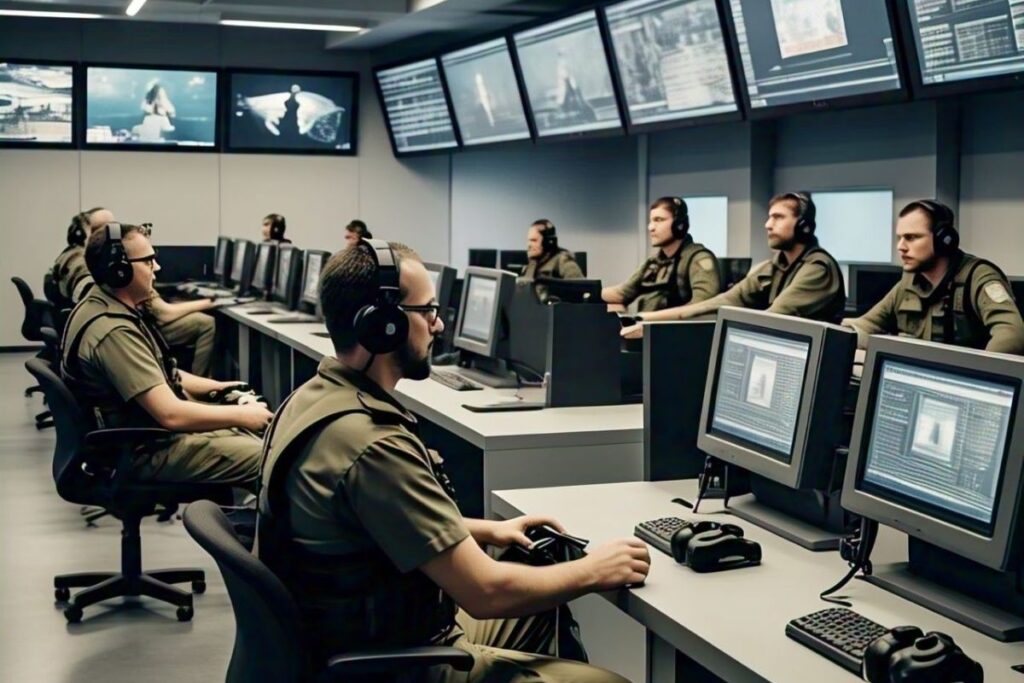
Future Trends in Security Guard Training and Certification
As security threats evolve, so too must the training programs that prepare guards to face them. Emerging trends in the industry point towards a future where guards will be expected to have expertise in cybersecurity, data protection, and counter-terrorism awareness. Cybersecurity, in particular, is becoming increasingly relevant, as data breaches and cyber threats pose serious risks to businesses and individuals. Future training programs may incorporate modules on identifying cyber risks, securing digital assets, and responding to cyber incidents, which will be invaluable skills in a digitally interconnected world.
Additionally, security guards are expected to take on more customer service responsibilities as clients demand a higher standard of professionalism. Emphasis on soft skills such as communication, conflict resolution, and emotional intelligence will continue to rise, as guards are now viewed not only as protectors but also as brand ambassadors for their clients. As Australia adapts to these new security challenges, training and certification programs will evolve, positioning guards to succeed in an industry that increasingly values adaptability and specialized knowledge.
To gain insights into the types of threats commonly encountered in Australian retail environments and how guards mitigate them, refer to our article on top security threats in Australian retail and how guards mitigate them.

Conclusion: The Ongoing Importance of Rigorous Training
The evolution of security guard training and certification in Australia underscores the industry’s commitment to safety and professionalism. Modern security guards are more than just a physical presence; they are highly trained professionals capable of managing risks, responding to emergencies, and maintaining a calm demeanor in high-stress situations. With ongoing developments in training standards, certification requirements, and the adoption of technology, the Australian security industry continues to raise the bar, ensuring that security guards are well-prepared to face today’s challenges.
For businesses and organizations in need of top-tier security services, understanding the qualifications and training behind each guard offers reassurance that their security needs are in capable hands. To learn more about the diverse range of services offered by security guard companies, please explore our services page, which details various options tailored to meet specific security needs.



